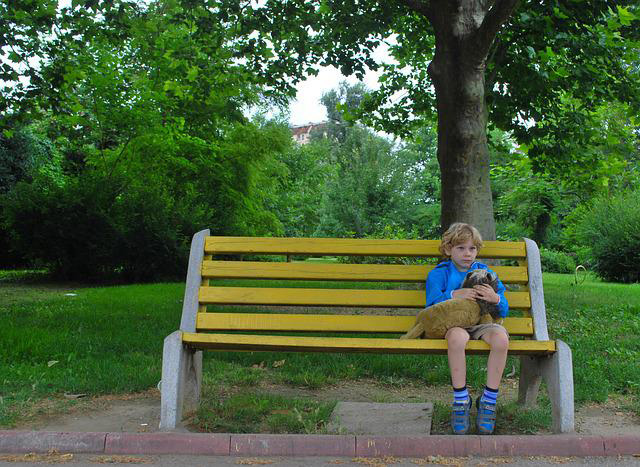3 Crucial Conditions When a Court Orders Therapy in a Parental Alienation Case
Do your children side with your ex and against you? Do they vilify you? Refuse to spend time with you? Show nothing but contempt?
If your children reject you without good cause, they could suffer from a parental alienation problem. The alienation can range from mild to severe. At its worst, children believe everything bad they are taught about a parent, refuse contact, and may even be violent. Their expressions of hatred are intense and shocking. A father who was furious about a judge’s ruling against him manipulated his child to believe the mother was a horrible parent. The child told his mom he wished she were dead.
Solutions to Parental Alienation
What can a parent do in this situation? The classic guide, Divorce Poison: How to Protect Your Family from Bad-mouthing and Brainwashing, gives tips to prevent alienation and interrupt the process if it has already begun. If things don’t improve, the next step is psychotherapy or counseling. Not just to heal the fractured relationships but to deal with all the psychological consequences alienated children suffer.
Who should get therapy? The alienated child? The parent who is teaching the child to hate the other parent? The rejected parent? The entire family?
The parent who encourages the children’s alienation, and the children themselves, claim the problem belongs to the rejected parent who needs to become a better parent and earn back the children’s love and respect. Naturally, if the rejected parent is not primarily responsible for the problem, and the other parent continues to undermine the children’s relationship with the rejected parent, the problem won’t go away if only the victimized parent gets help. Effective therapy relies on working with all members of the family. And for this to happen, you will want a judge to appoint a therapist and to order both parents to cooperate with the treatment. Without such an order, therapy is likely to flounder because the children, and especially the alienating parent, have little motivation to change.
It is not enough for the court to appoint a therapist and require the family to participate. To maximize the chance of success, courts should specify three conditions when ordering treatment of alienated children—especially if the children remain primarily in the care of the parent who fosters the alienation. Custody evaluators should consider the same three conditions if they recommend treatment to alleviate parental alienation. These conditions are crucial. Therapy attempted without them is likely to disappoint and may do more harm than good.
3 Key Conditions
- A time frame after which the impact of the treatment will be assessed.
- Explicit criteria for evaluating progress and success of the treatment.
- Contingency plans in the event that the treatment is ineffective.
Let’s look closer.
-
Time Frame
A treatment plan should specify a reasonable time frame before progress is measured. We would not expect major changes after just a few one-hour sessions. Problems such as anxiety may be alleviated quickly, but overcoming severe alienation takes more work. So the court must give the therapist a reasonable length of time to achieve progress.
But a time frame that is too long may keep a child in a treatment that has little chance of success—not only prolonging the child’s suffering but preventing the child from receiving effective help.
-
Criteria to Evaluate Progress
Evaluators and courts should specify criteria to measure progress in therapy. Without signposts, the parents and their lawyers will debate the effectiveness of treatment. Does the child’s mere attendance in therapy signal progress? Or should we look for more positive signs of progress, such as the child having a more realistic view of the rejected parent, being more affectionate, and seeking more positive contact?
-
Contingency Plan
Psychotherapy with severely alienated children who live primarily with the aligned parent has a high likelihood of failing. Thus, it is essential that evaluators recommend and courts signal to the parents what should happen if the court-ordered treatment fails. If the child resists trying to heal the relationship, and six months go by with no significant improvement, will the court halt treatment and give in to the child’s demands to avoid a parent? Will the court increase the child’s time with the rejected parent?
Expectations about what will happen if treatment fails may influence how an alienating parent and alienated children handle therapy. If they think the court or the rejected parent will give up efforts to overcome the problem, this can motivate them to sabotage treatment progress. But if they think treatment failure will lead to unpleasant consequences, they may work more diligently to repair the damaged relationships. For example, if a parent who engages in severe alienating behaviors, and a child who is severely alienated, believe the court will place the child primarily in the custody of the rejected parent if therapy fails, this parent and child may be more motivated to alleviate the problem rather than face a consequence they regard as worse. Some people argue—without scientific evidence—that changing custody is likely to traumatize children, and not worth the emotional cost of trying to heal the relationship. I believe this argument trivializes the meaning of trauma, a term usually reserved for horrific events.
Takeaway Lesson
If the court orders treatment to alleviate parental alienation, ask the court to include these three conditions. When being evaluated, ask the evaluator to consider these conditions when recommending court-ordered therapy. For other important provisions of court-ordered therapy, see Chapter 8: Getting Professional Help, in Divorce Poison.
For an overview and additional resources on the identification, prevention, and treatment of parental alienation, see Parental Alienation: The Psychology of Fractured Parent–Child Relationships at the Child and Family Blog and warshak.com.
Richard A. Warshak is a past clinical professor of psychiatry at the University of Texas Southwestern Medical Center. He is the author of Divorce Poison: How To Protect Your Family From Bad-mouthing and Brainwashing, and Welcome Back, Pluto: Understanding, Preventing, and Overcoming Parental Alienation. Find him on Facebook: @RichardAWarshak.
Dr. Richard A. Warshak








Add Comment